Guardian of The Wild
African buffalos are notorious for being the most dangerous of the Big Five game animals. They’re massive, incredibly strong, remarkably fast, foul-tempered, aggressive (especially when injured), fiercely protective of their herds and hold grudges (they’ve been known to attack hunters that have wounded them, even years later). During his scout training in 1985, Neddy Mulimo learned of the buffalo’s fierce reputation the hard way. Two months into his training at Nyamaluma Wildlife Training College in Mfuwe, he was ambushed by an injured buffalo and only narrowly escaped with his life. Neddy was so distraught by the incident that he nearly quit his training, but ultimately, he recommitted himself to wildlife protection. He laughed about the buffalo encounter months later during his graduation, with renewed vigour for continuing his work as a dedicated conservationist. 36 years later, in 2022, he was named the Tusk Wildlife Ranger of the Year and travelled to London to receive the prestigious award presented to him by Prince William. It was a world away from where he works today and where he grew up.
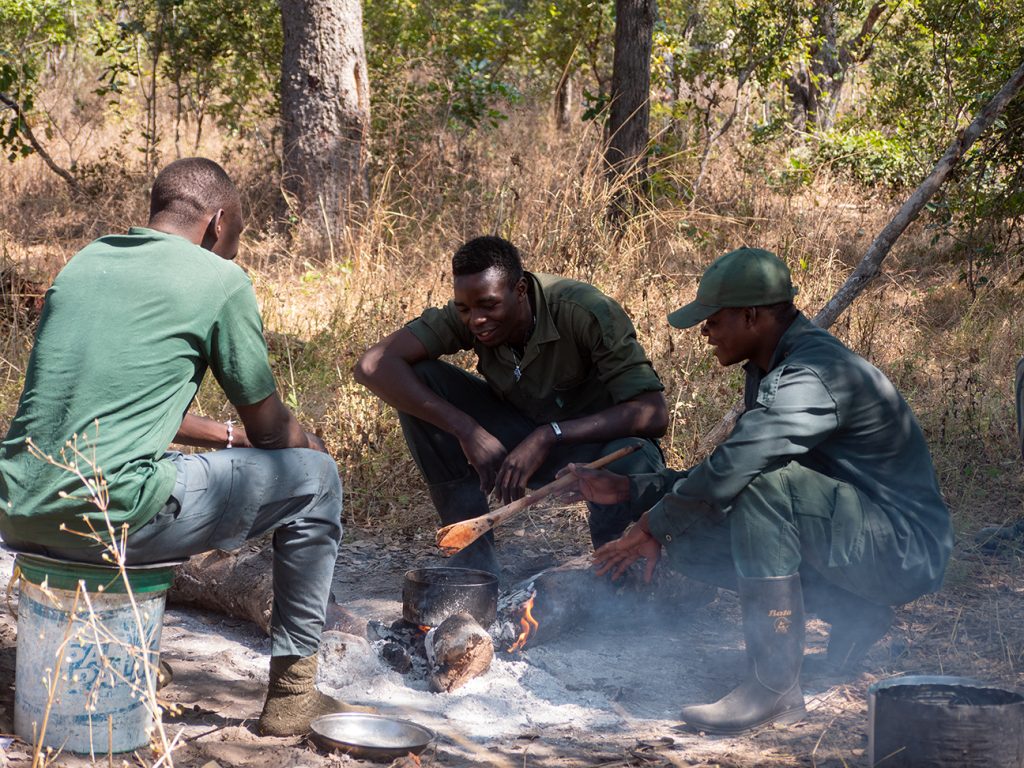
As a young boy growing up in Lusaka’s Matero township, Neddy Mulimo dreamed of becoming a truck driver. He craved the freedom of the open road and opportunities to travel within and outside Zambia, and he thought truck driving would give him that. While in the 5th grade at Matero Boys School, Neddy joined the Chongololo Club, where he learned about the natural environment and wild animals, big and small, which changed his life’s trajectory. Through the club, in the midst of an urban jungle, he uncovered an enduring love and passion for the natural world that never left him.
In secondary school, Neddy went on a school trip to Treetops School Camp in Kafue National Park. For Neddy, the city boy who loved nature, this was his first time in the bush and the first time he got to see wildlife up close, and he knew this was where he belonged. To this day, he prefers a quiet life in the bush to city life, choosing birdsong, the grunting of hippos and the bellowing of elephants over the racket of disorderly Lusaka traffic. Neddy’s story underscores the importance of education, both in the classroom and in the untamed wild, in advancing the conservation agenda. Club sessions in a classroom and a school trip to the bush ignited an unceasing love for nature and a decades-long career in conservation, which has touched countless lives. “I learned the importance of animals. I learned why trees are there and what they provide for us, and I developed my passion for nature,” Neddy shared about his experience.
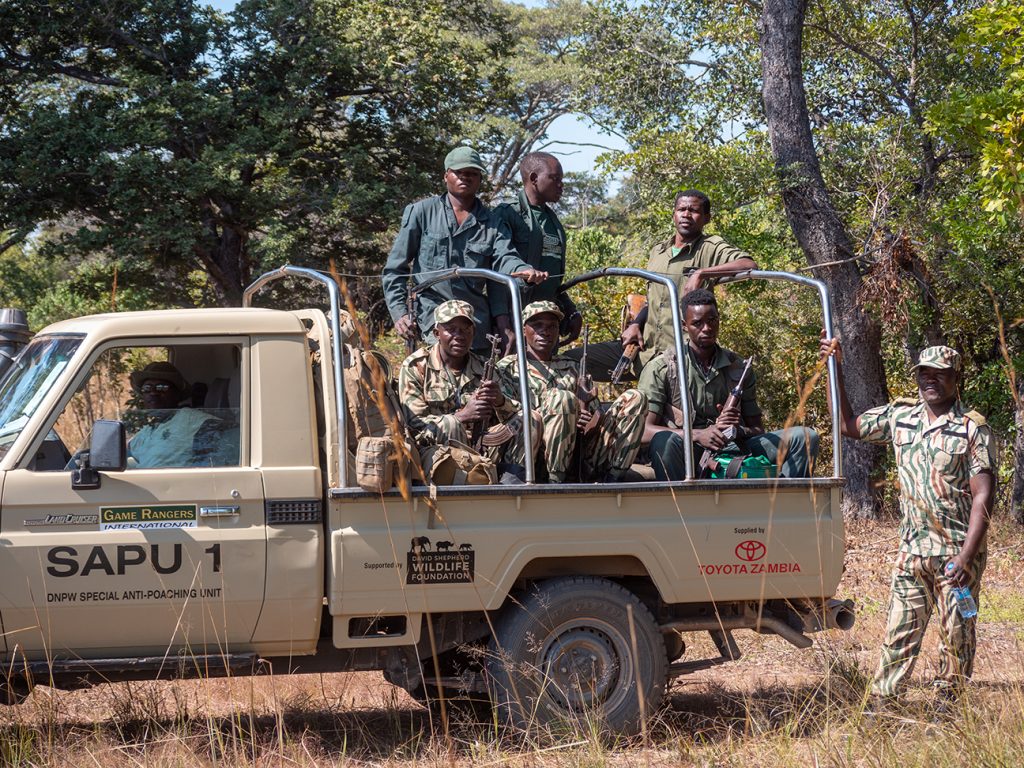
Neddy became a driver, but not in the way he had initially envisaged. He was, however, on the path toward his true calling. After high school, he worked as a driver for an education NGO, the Wildlife and Environmental Conservation Society of Zambia (WECSZ). He delivered educational material around Lusaka and Kabwe, including magazines produced by the club that sparked his love for nature and conservation, the Chongololo Club. After five years on the job, he was sent to Nyamaluma to train as a tour guide in 1980. Following his training, he was transferred to another place that had already profoundly impacted his life, Treetops School Camp. There, he empowered school children from all over Zambia with knowledge, “showing them the beauty of wildlife and why they should all be rangers in their own way.”
During his time at Treetops, he met many influential people at the Department of National Parks and Wildlife, and it was them who encouraged him to train to become a scout. After qualifying as a scout, he worked in Kabwe, Mumbwa and later for 14 years in Blue Lagoon National Park. While working in Blue Lagoon, Neddy rose through the ranks and became a wildlife police officer and was in charge of operations at the park. There is a wistfulness in his voice when he speaks about Blue Lagoon, where he worked the longest. It’s no surprise when he says, “It became like my home and it’s the park I love most.
After almost a decade and a half in Blue Lagoon, Neddy was transferred to Mumbwa and worked in the regional head office for four years before retiring. He retired in May 2012, bringing an illustrious career to an end, or so he thought. It was to be a short-lived retirement; the world of conservation still needed Neddy. He was called back to duty after reports of poaching along the Lunga River in Kafue National Park. A team of young rangers required specialised training to tackle the reported poaching. Everyone agreed that Neddy was the best person to train them, so he was called back to work in July 2012 and dutifully obliged. Three months later, he began working with the local conservation NGO Game Rangers International (GRI). Neddy is currently based in Kafue National Park and still works for GRI today, heading their Special Anti-Poaching Unit (SAPU), which he helped establish. Some of SAPU’s successes include arresting over 700 poachers and traffickers, seizing 372 kilos of ivory and confiscating over 360 firearms.
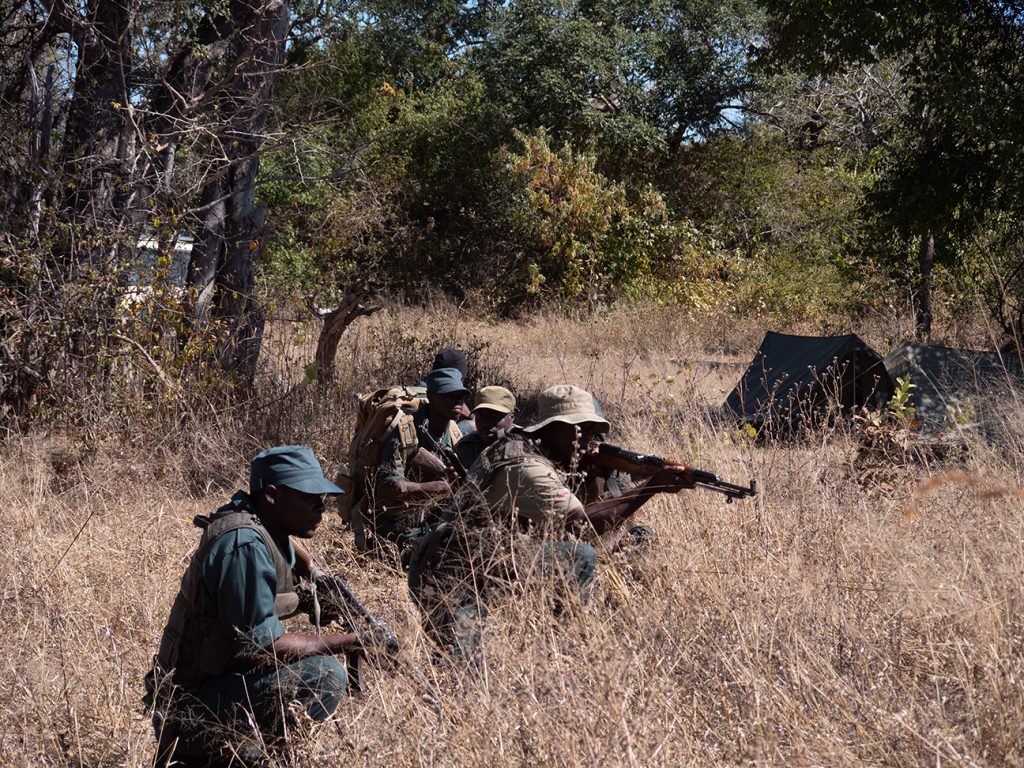
Neddy’s experience, expertise and dedication have undoubtedly been pivotal to SAPU’s success. His work, however, involves protecting wildlife, supporting his fellow rangers, and looking out for the communities in and around the areas he works in. He says, “I ensure the rangers under the Special Unit are looked after very well. As someone who has already done the work younger rangers are doing, I know what they experience and what they need to thrive and do a good job. I have also worked with communities and dealt with human-animal conflict. I’m here to help communities affected by human-animal conflict and protect wildlife.”
“I’M HERE TO HELP COMMUNITIES AFFECTED BY HUMAN-ANIMAL CONFLICT AND PROTECT WILDLIFE”
His vast, dedicated experience in wildlife protection, his experience as an educator and a trainer, the work he has done towards developing policies that look out for rangers and his work with communities carried out over nearly 40 years sums up why Neddy was named Tusk Wildlife Ranger of the year.
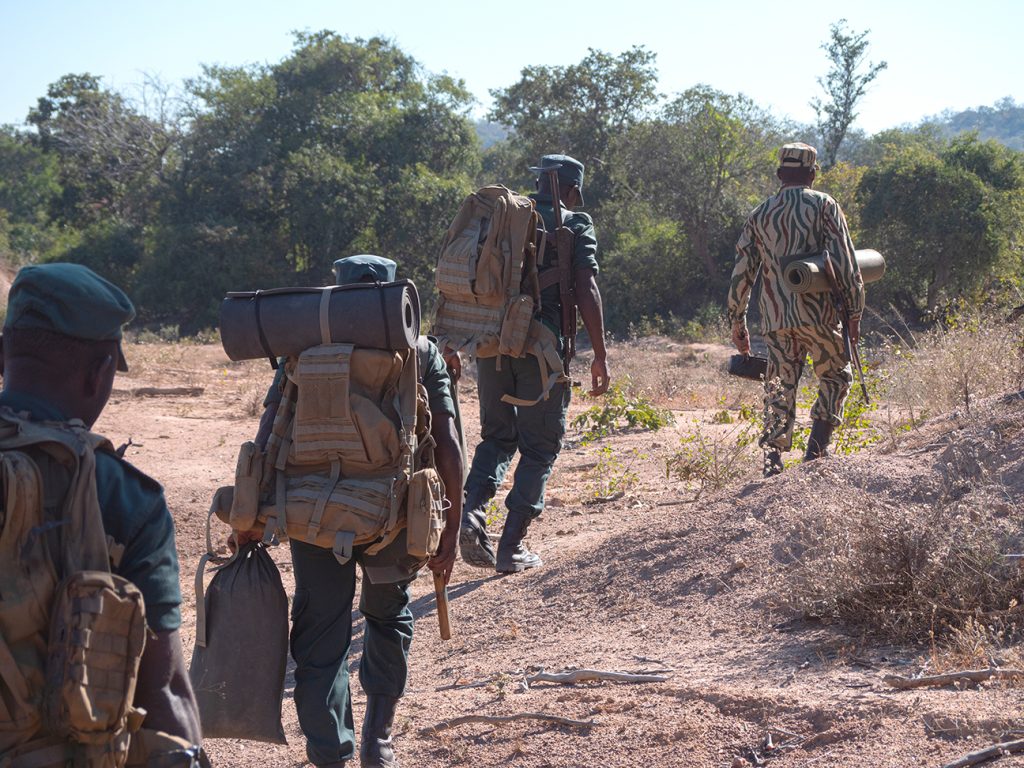
Neddy hopes his win will encourage other rangers and anyone who wants to contribute to conservation efforts in Zambia to persevere. While he is proud of his achievements, he quickly emphasises that being a ranger is challenging and rife with danger. “It requires dedication, self-sacrifice and a great passion for nature. The dangers are many. When I started this vocation, we used hunters’ rifles and faced poachers with military-grade weapons. Also, though most people in the community support us, there are those few who are against us because we stop them from hunting game meat. Then there is the danger posed by wild animals.” At this point, we discuss the wounded buffalo that attacked him two weeks into his scout training. Though he came close to quitting at the time, he chose to see the experience as a teaching moment. He told himself, “These are the animals we have come here to look after. Now that I have survived, I’ve learned a lesson and should continue. The animals I had vowed to protect can pose a danger to me but that shouldn’t be a reason not to protect them. These animals cannot distinguish between me, a poacher, or anyone who intends to harm them.”
Neddy is the third Zambian to be named Tusk Wildlife Ranger of the Year, the first and second being the late Solomon Chidunuka (2017) and Benson Kanyembo (2019). He is immensely proud of the country’s legacy of conservation and efforts made to safeguard its natural heritage. Reflecting on this legacy, he shares, “Zambia has come a long way in terms of conservation. Even the founding father, Dr Kenneth Kaunda, was a man who loved nature. Whenever he took a holiday, he spent it in Mfuwe to be closer to animals and nature. In fact, the budget for my intake as a trainee scout came from State House, following direct orders from KK. Our group was known as the KK 40.
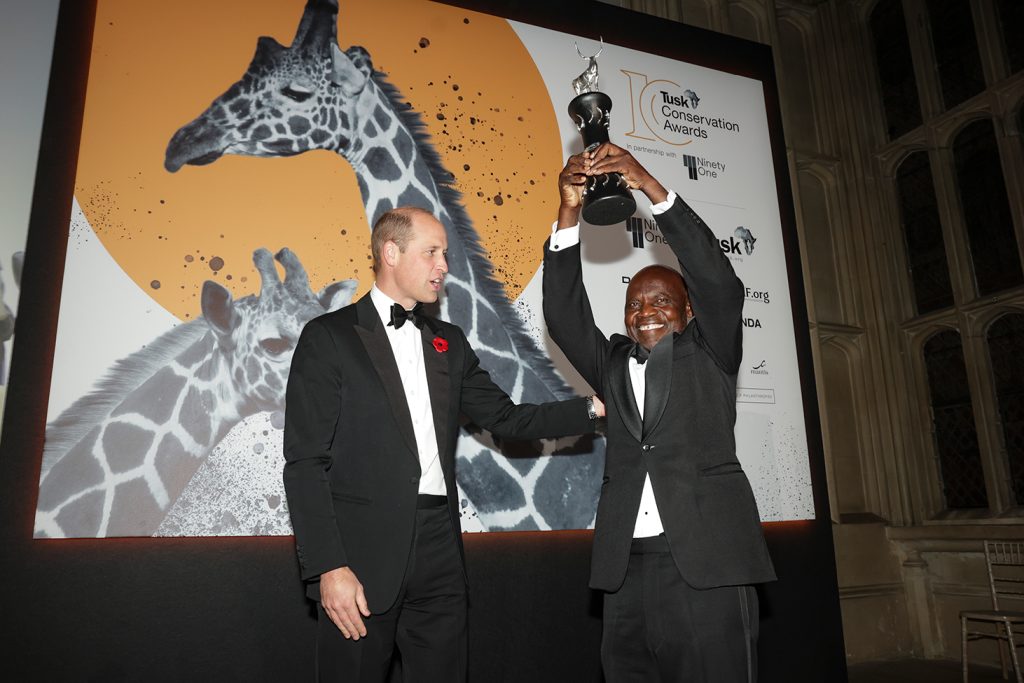
There is no doubt that Neddy Mulimo has cemented his place in Zambia’s conservation history and has paved the way for legions of others to follow in his footsteps. Whether or not he enters a second retirement, he promises to continue doing the wildlife conservation job “until I am completely useless.”




Tupilwe
2 years agoFière de vous Monsieur Neddy.
Proud to have people like Mr. Neddy in our beautiful butterfly shaped nation.